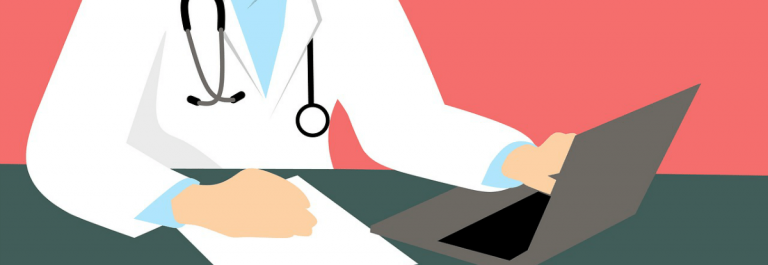The Medical Negligence Blog



Patients puts off as GPs being paid to prescribe statins
Patients are being put off amidst concerns over GPs being paid to prescribe statins. The potentially life-saving medication that can lower cholesterol to avoid heart attacks and strokes is often scrutinised by patients over financial incentives GPs reportedly receive for handing them out.
There’s apparently a widely-held belief among Brits that the statins they’re given aren’t needed because of GPs being paid to prescribe statins.
Is this just a case of mistrust over GPs being paid to prescribe statins, or should patients be worried about what they’re GPs are telling them to do?

Calls for inquiry into rising death rates in England and Wales
There are calls for an inquiry into rising death rates in England and Wales. According to recent research, there has been an additional 20,000 deaths at the start of 2018 that have gone without explanation.
In the midst of what many are still calling an NHS crisis over funding and staffing issues, the news of rising death rates doesn’t bode well.
The authors of the research are asking for an urgent investigation to explain why there has been a rise in death rates at the start of this year. According to the research, there doesn’t appear to be an obvious explanation for the deaths.

Gosport Hospital Deaths tragedy
The Gosport Hospital deaths scandal is an absolute tragedy. The independent inquiry that families have been calling for for decades has finally taken place, and the outcome is disturbing.
According to the independent report, some 450 Gosport Hospital deaths could have been avoided and have been directly linked to dangerous opioid-use policies where patients were subjected to constant dosages of diamorphine; also known as heroine.
Dr Jane Barton, a GP who worked at Gosport Hospital for 12 years, was found to have routinely overprescribed dangerous and life-shortening opioids to patients which has led to potentially hundreds of premature deaths.

NHS funding boost is not enough, senior healthcare experts warn
The NHS funding boost is not enough, senior healthcare experts warn.
Some 100 senior NHS doctors and nurses have written an open letter to the UK Prime Minister, Theresa May, to let her know that this hugely-anticipated NHS funding boost is simply not enough.
We’ve been calling for an NHS funding boost for a long time now, and although it’s good to see that the government has finally listened to reason and accepted that the NHS is stretched beyond its means, senior healthcare professionals are downplaying the announcement on the basis that more funds are still needed.

Staff shortages leaving patients in the hands of untrained Healthcare Assistants
Staff shortages are reportedly leaving patients in the hands of untrained Healthcare Assistants who are forced to step in and do the jobs of doctors and nurses without proper training and qualifications.
Healthcare Assistants are, of course, vital for the care of patients, and it’s certainly not their fault that they’re having to fill the gaps due to staff shortages. But this is very dangerous. Staff having to undertake the type of care that requires training and proper supervision is leaving patients in a vulnerable position, and it’s not fair on the Healthcare Assistants either.

The £175 genetic “Angelina Jolie” cancer test is the perfect example of prevention over treatment
Offering the £175 genetic “Angelina Jolie” cancer test to patients is the perfect example of how prevention over treatment can really save lives.
As we practically say in almost every single article we write, we’re aware that the NHS does not have a bottomless pit of money, and funding and resources are both a real problem right now. But, studies have confirmed that offering the cancer test that was made famous when Hollywood actress, Angelina Jolie, helped to raise awareness of a “faulty gene” linked with breast and ovarian cancer, is said to be cost effective.
This is the perfect example of how prevention over treatment should always be the primary focus.

The Medical Negligence Lawyers call for increased funding for cancer care and treatment
Amidst the need for victims of medical negligence to claim for cancer misdiagnosis, or a lack of diagnosis, the Medical Negligence Lawyers call for increased funding for cancer care and treatment.
The preventative approach must always prevail, and the more that can be done to save lives and spot cancer early, and avoid any incidents of a misdiagnosis or cancer being diagnosed too late, must be at the forefront of the NHS’s mind.
Once cancer is missed and is later diagnosed, for many, the damage is done, and it’s too late to do anything about it. It’s important that more is done to safeguard and secure better funding in an age where funding issues are resulting in a lack of specialised staff available to care for cancer patients.

Routine surgery cancellations and delays
Routine surgery cancellations and delays can be a real headache for the patients involved. The NHS must, of course, prioritise the emergency cases, but when routine surgeries are cancelled and delayed as a result of avoidable problems, we’re looking at a very different issue indeed.
Shortages of staff and cyber-security incidents have been two recent reasons for spates of routine surgery delays and cancellations. These are the kinds of scenarios that we should not be facing, and for the patients who may have to wait and suffer longer, can anything be done?
Patients are entitled to seek legal advice for routine surgery cancellations and delays, and there are scenarios were a case can be made.

Cancer care cuts over lack of staff an “open door to negligence”
Cancer care cuts over a lack of staff are an “open door to negligence”, Our Medical Negligence Lawyers warn.
Earlier this year, we saw the story of a leading NHS hospital reportedly delaying chemotherapy services for cancer patients, and cutting treatment for terminally-ill patients, as a result of chronic staff shortages.
Whilst we can all appreciate the funding struggles of the NHS right now, we cannot have cases of delayed or reduced treatment that stem from a lack of resources, and something must be done.

NHS accused of breast cancer scandal “cover up”
The NHS has been accused of a breast cancer scandal “cover up” following revelations that almost half a million women aged between 68 and 71 in the UK did not receive their invitation for breast cancer screening as a result of a computer glitch.
75-year-old old Patricia Minchin did not receive her invitation for breast cancer screening, reportedly because of the error, and the cancer has since spread.
Ms Minchin has accused the NHS of a “cover up” in a scandal that has reportedly seen as many as 270 women die, possibly as a direct result of not receiving their invitations because of the glitch.

The line between due diligence and medical negligence is thin
It’s fair to say that the line between due diligence and potential medical negligence is thin. We all know that the NHS is stretched, and services like GPs and A&E Departments must remain efficient and well-funded.
It’s therefore understandable that NHS campaigns nowadays sometimes try and persuade people to only use NHS services where it’s absolutely necessary. In days gone by, doctors may have frowned upon patients Googling their symptoms and jumping to irrational conclusions, but in today’s increasingly digital age, patients are actually encouraged to look online before they use NHS time.
But, the line between this is worryingly thin.
Read More

Advice on No Win, No Fee claims for NHS drug errors
NHS drug errors can leave patients suffering serious harm, and they can also cause fatalities. Even the smallest error with a dosage or a prescription could be the difference between life and death for some, which is why the government are aiming to drastically reduce what they have labelled as “appalling levels of harm and death” related to drug errors.
We advise and represent patients who have suffered harm because of NHS drug errors. From incorrect prescription dosage claims to clients being prescribed the wrong course of treatment… If you’ve suffered harm due to an NHS drug error, you may have a claim for medical negligence.
Read More